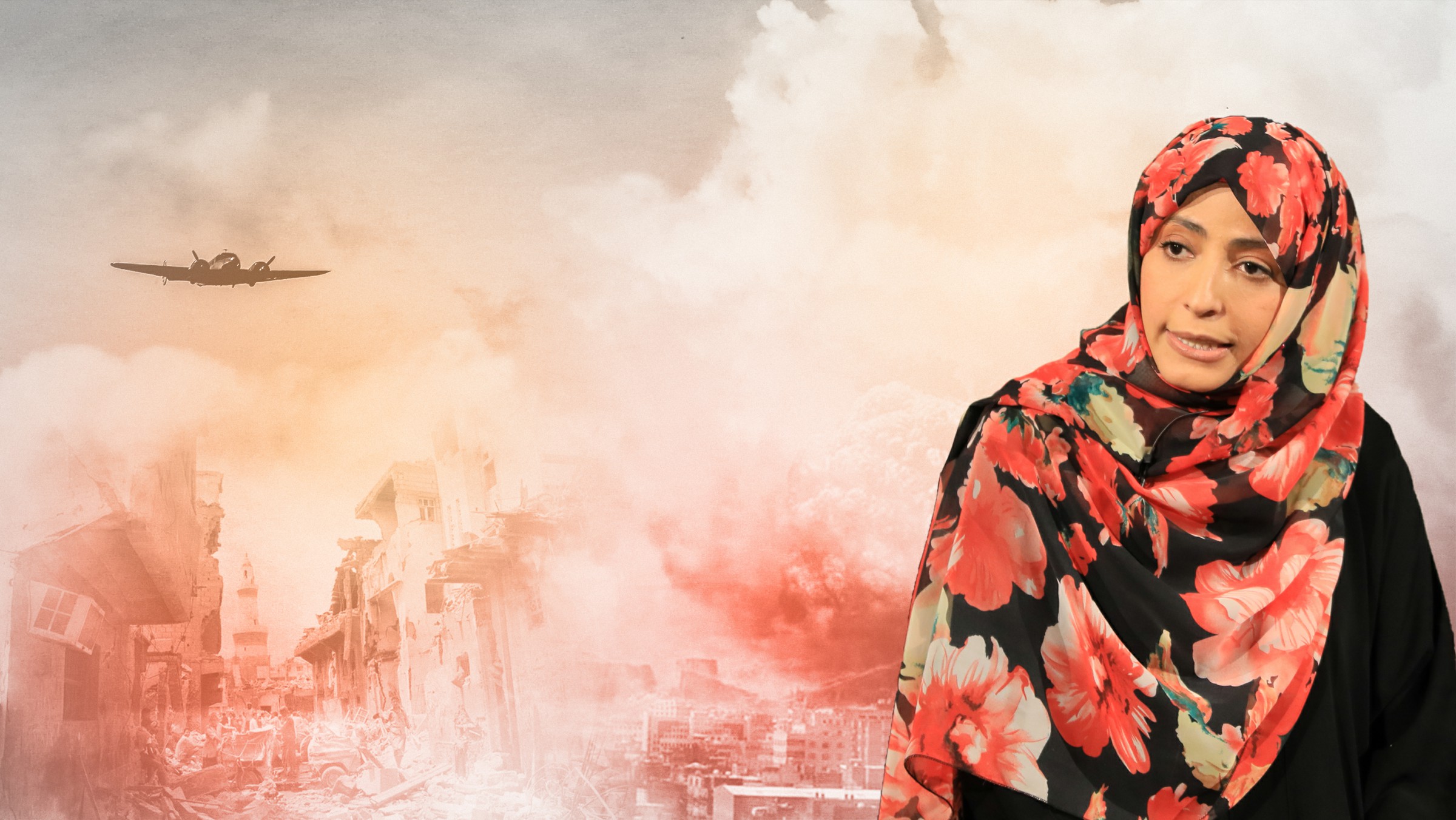News

Statement from Tawakkol Karman on the 6-year anniversary of the War in Yemen
Six years ago, Saudi Arabia began a brutal military intervention in Yemen, under the pretext that a powerful show of force could defeat the Houthi rebels who had overthrown the Yemeni government. The Saudi-led offensive cemented a “counter-revolution” against Yemen’s transition to democracy.
In the fall of 2014, the Houthis conspired with the deposed dictator Ali Abdullah Saleh to sabotage Yemen’s transformation into a peaceful and equitable society. Their rebellion upended Yemen’s people-powered democratic process, which began at the dawn of the Arab Spring.
Saudi Arabia’s violent interference in Yemeni affairs, aided by its major ally the UAE, has only caused further unrest in my country. Its actions have nothing to do with restoring the stability of the state or protecting civilians.
Instead, the bombs threw my country even deeper into turmoil. They inflamed the Houthi rebellion, which has made the Yemeni crisis more complicated.
Today, the dictators and criminals who fuel the war have blood on their hands. Since the conflict started, tens of thousands of Yemenis have died, countless children have fallen sick with cholera, and millions more live in poverty, at risk of famine. The United Nations has said that their plight amounts to the worst humanitarian crisis in the world, all in the midst of the devastating COVID-19 pandemic.
I commend U.S. President Joe Biden for taking important first steps to end the bloodshed. By ending American support for Saudi offensive operations in Yemen, he began following through on a critical pledge of his campaign. But the U.S. and international community still have a long way to go to secure justice for the Yemeni people.
I also call on President Biden to put the Houthi rebels on probation, as they pursue policies similar to those of ISIS and terrorist groups, and not to grant them political gains at the expense of Yemenis’ right to freedom, human rights and democracy.
The path to a lasting peace begins with taking meaningful steps to aid the Yemeni people. To start, this means ending the Saudi-Emirati control of Yemeni ports and airports that now serve as military barracks and detention centers where crimes are committed against Yemeni opponents and activists. It also means ending the Houthis’ bloody offensive in Ma’rib, and the internal blockade on Taiz. Such cruel schemes only aggravate hunger and disease.
In order to ensure a serious peace process, it will be important for the Yemen file to be referred to the International Criminal Court to prosecute the war criminals on all sides.
If President Biden truly wants to live up to America’s ideals, more is needed. He and his allies must support Yemen’s democratic dreams, which have only been delayed by both the Houthi rebellion and foreign interference, be it Iranian, Saudi or Emirati. My people will never welcome rulers who govern by violence. The U.S. must lead the international community in ending its support for Saudi and Emirati blockades and holding all sides accountable for their crimes against Yemenis.
Peace in Yemen means restoring the authority of the democratically elected state, rejecting the Saudi-UAE coalition’s occupations, and ending the Houthi militia’s coup backed by Iranian mullahs. Otherwise, nothing will change. We cannot achieve peace by blessing the Houthis’ authority and leaving millions of people hostage to their abuse. Nor can we achieve peace by subjecting Yemenis to the whims of foreign occupiers.
The National Dialogue Conference provided an important roadmap for how to bring all Yemenis together in pursuit of a peaceful, more prosperous future. I remain hopeful that we can one day achieve the democracy we dreamed of when we ignited our revolution a decade ago.
Let us work together for a Yemen free of heavily armed and hateful militias, free of occupation and guardianship. A democratic Yemen that is fully empowered to determine its own destiny, based on mutual cooperation and respect.
